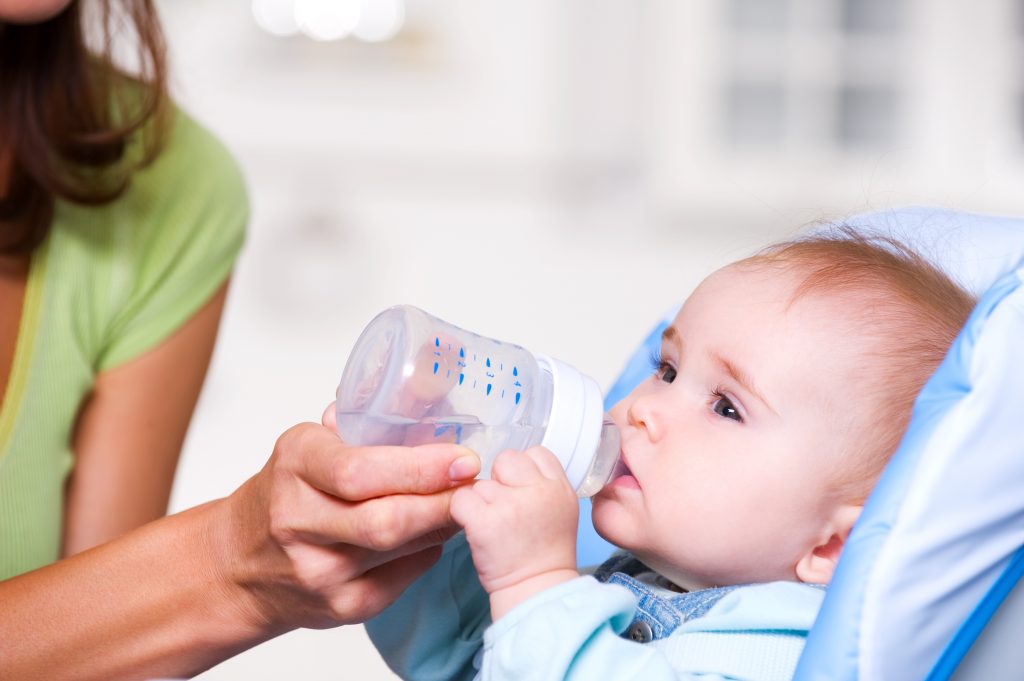There is no set age at which babies should start drinking water, but the recommended intake is four to eight ounces per day for babies aged six to twelve months. From twelve to twenty-four months, this increases to one to four cups of water per day. From two to five years, this amount increases to three to four cups. There are other articles on the internet that detail the best drinks for kids. Regardless of your baby’s age, you can begin providing a sippy cup of water a few times a day.

When is the right time to start introducing water to your baby?
Experts recommend that babies start drinking water at around six months of age. Breastfeeding babies may require a single ounce of water each day, but formula-fed babies can need up to four ounces. Depending on your baby’s age, thirty to forty ounces of water per day is a reasonable amount of fluid for your toddler. Earlier, however, may not be a good idea for your child.
If your baby is able to drink formula, you may want to introduce water gradually to your baby. When a baby is just six months old, water can be a little unappetizing to them. The best way to introduce them to water is by offering them different sources of liquid, such as a sippy cup, and letting them experience it. Eventually, they will get used to the taste of it and will be able to tolerate it.
A simple glass of water can be a great option for introducing water to your baby. For the first few months, your child should only be offered a few ounces at a time. It is a good idea to offer a small, open cup. At this stage, you can offer it to your baby with minimal help and then stop him or her before he/she reaches for the cup. A small, open cup can also be an excellent choice for introducing water to your little one.
Large Amount of water
As a general rule, babies should not be introduced to large amounts of water before they are six months of age. However, if your baby is sick, it may be a good idea to offer small amounts of water to keep it comfortable. If your baby is not well, you should also avoid giving him or her water if it is ill. The American Academy of Pediatrics recommends that infants begin drinking water after six months, but not before twelve.
Small of water
While babies can drink water from a sippy cup, they should not drink a large amount at once. During this time, the kidneys of newborns are not ready to handle large amounts of water at a time. So, it is better to introduce water gradually. This will allow the kidneys to cleanse the water. Then, when the child is older, he/she can be offered small amounts of it along with his or her meals.
Once the baby has started eating solids, he or she can begin to drink water from a sippy cup. This will help him learn to drink from a cup and prevent constipation. When your child is over six months, you should give your baby unlimited amounts of water. If your baby is still under six months, he or she can also start drinking juices. Make sure you give your baby juices with only natural fruit juices, as they are more nutritious than sugary drinks.
Limited Amount of water
Water consumption should be limited for a while. As a baby grows, the amount of water consumed will increase, depending on his or her age, activity, and climate. The main food for your child is milk and other solids. You should avoid giving your child too much water. If you have a baby, make sure that you provide lots of fluids to prevent dehydration. By adding more milk to the mix, you can introduce her to more natural food that is high in fat and protein.
Conclusion
When babies start drinking water, you should wait for them to be on solid foods. During the first few months, breast milk and formula are their main sources of nutrients. If you give them water before six months, it will reduce the amount of milk they consume, which will cause malnutrition. The nutrients from breast milk and formula are crucial for a baby’s growth. It is also important to avoid giving your baby too much water before they are six months old.
